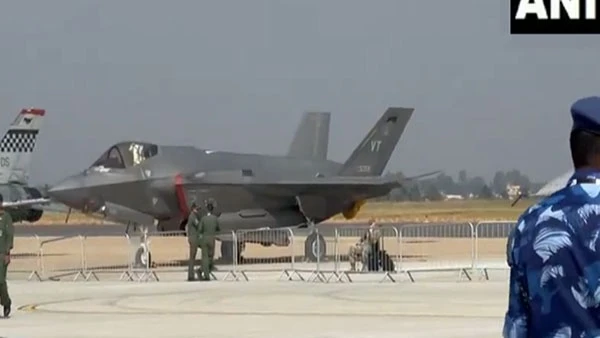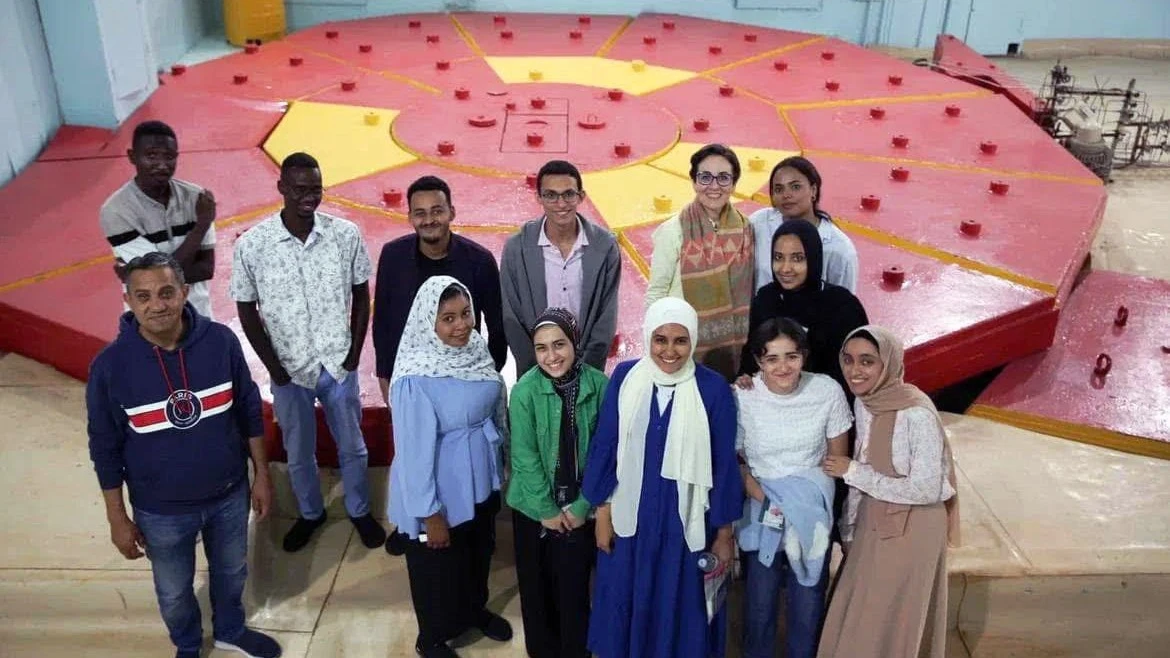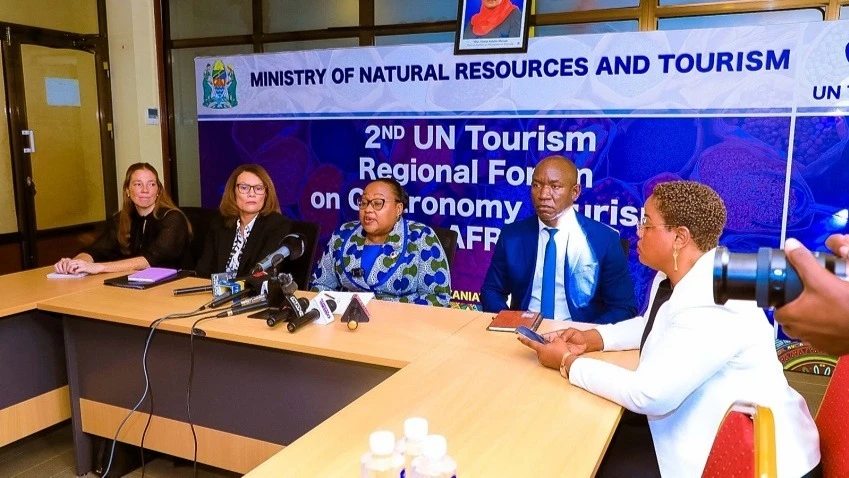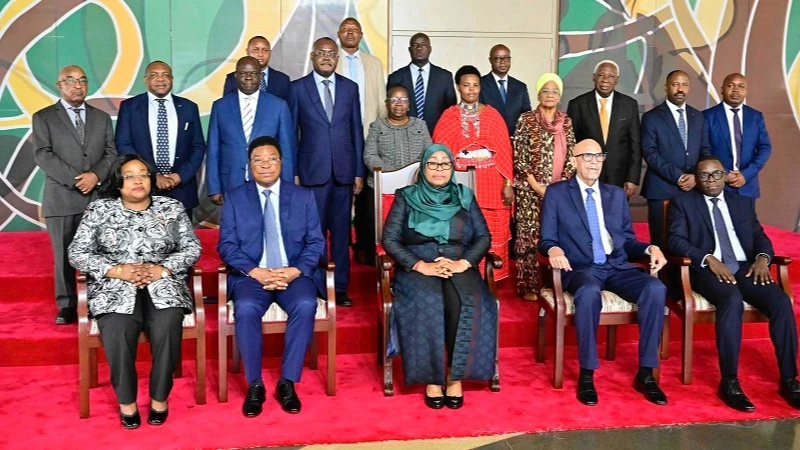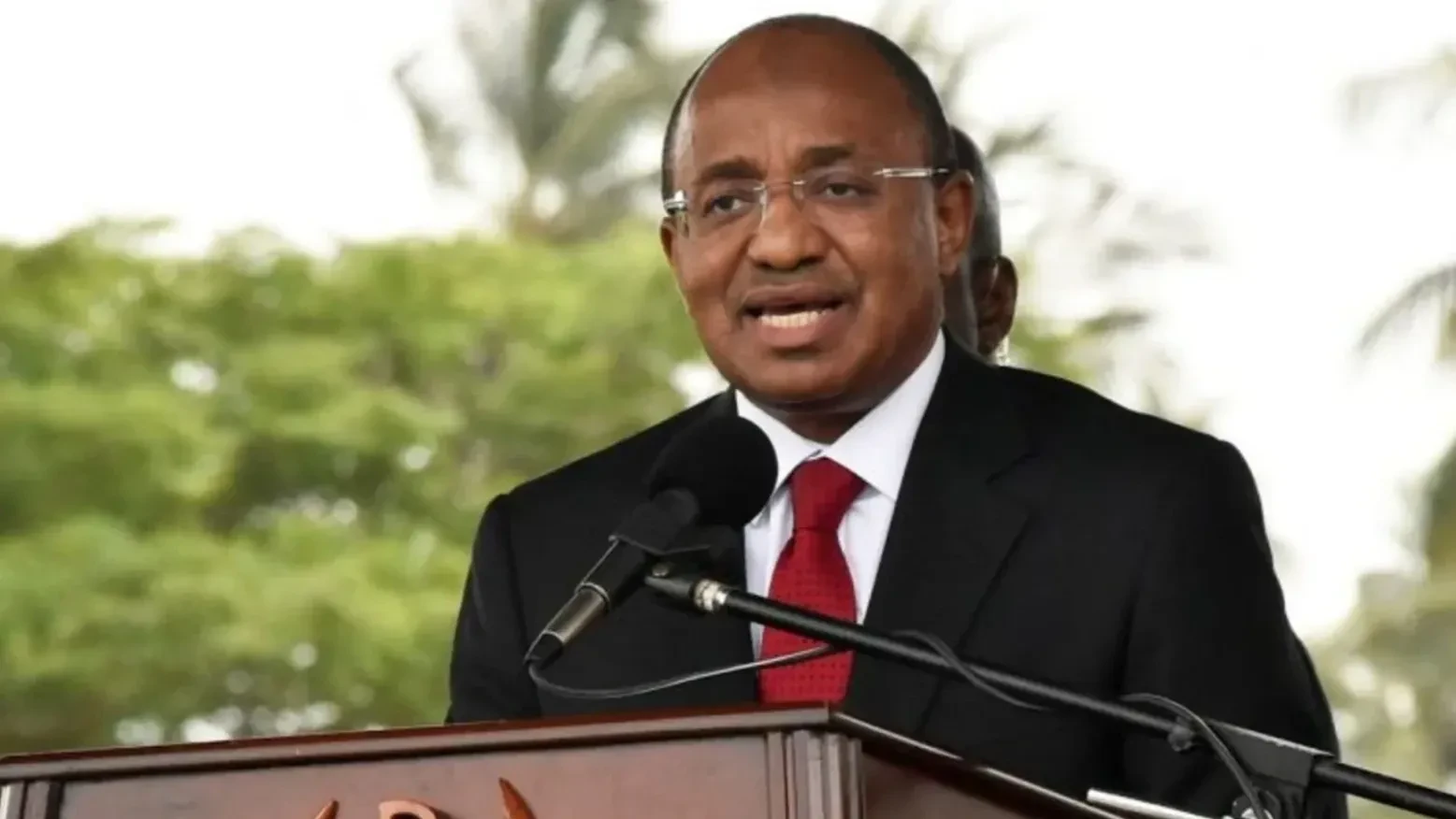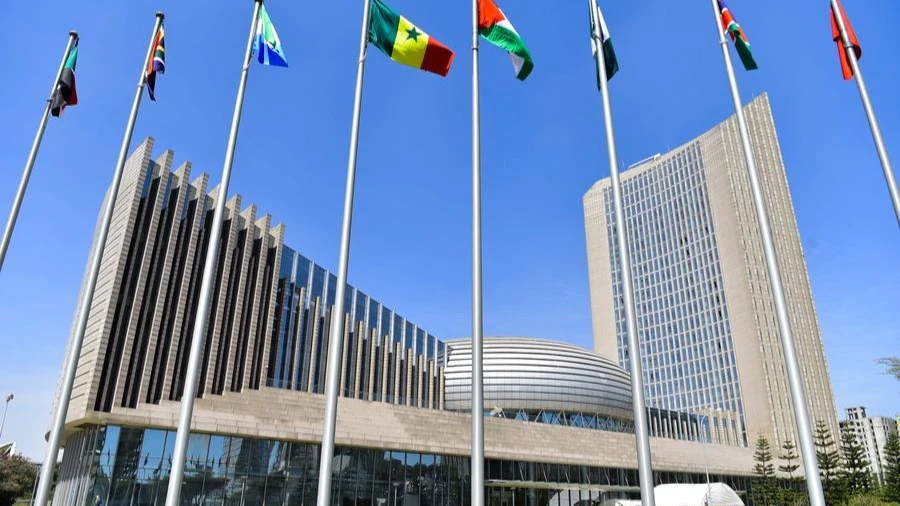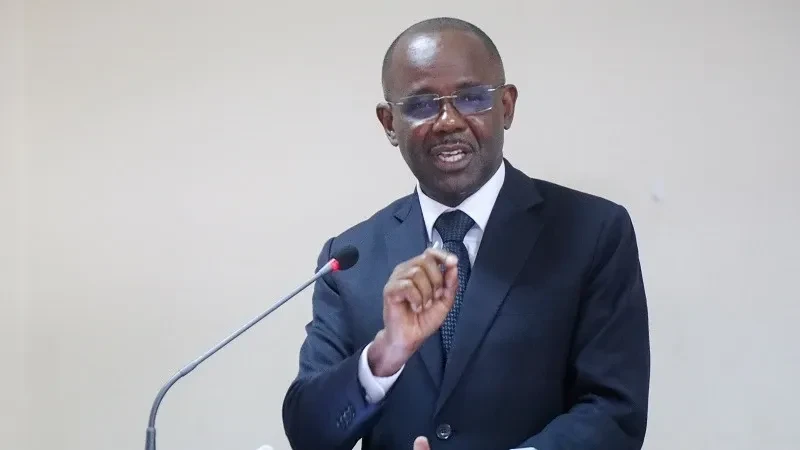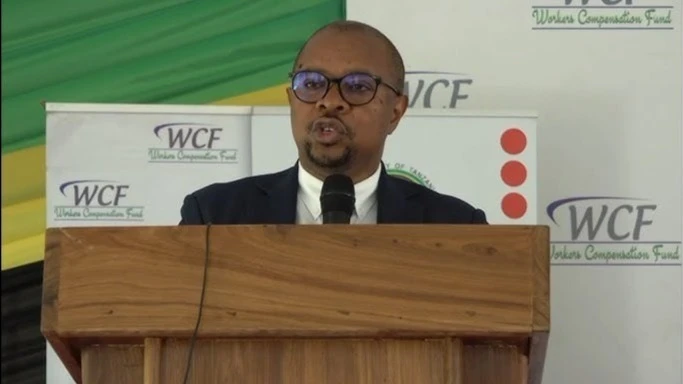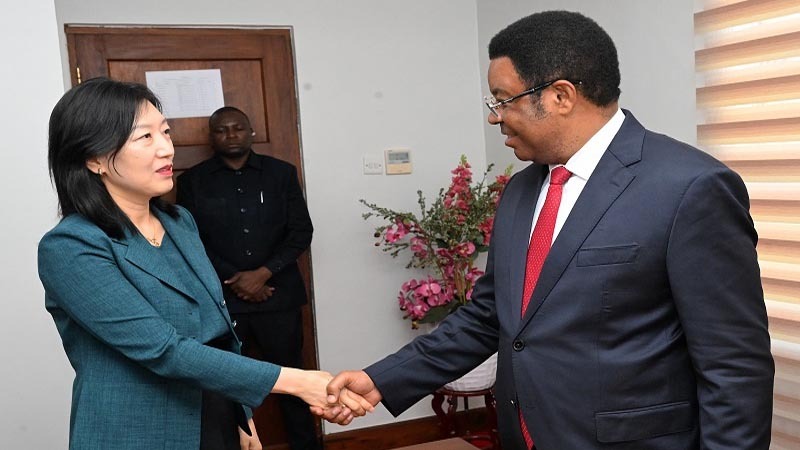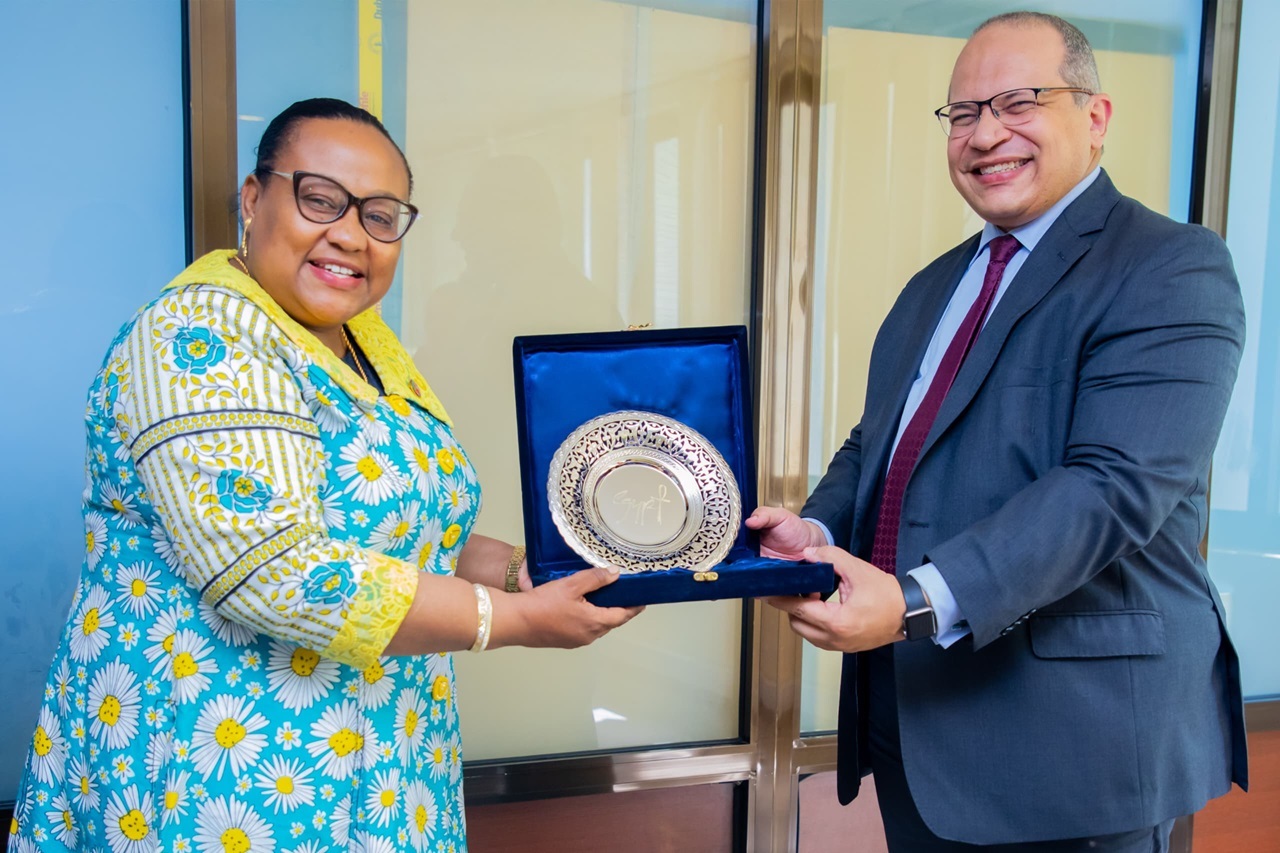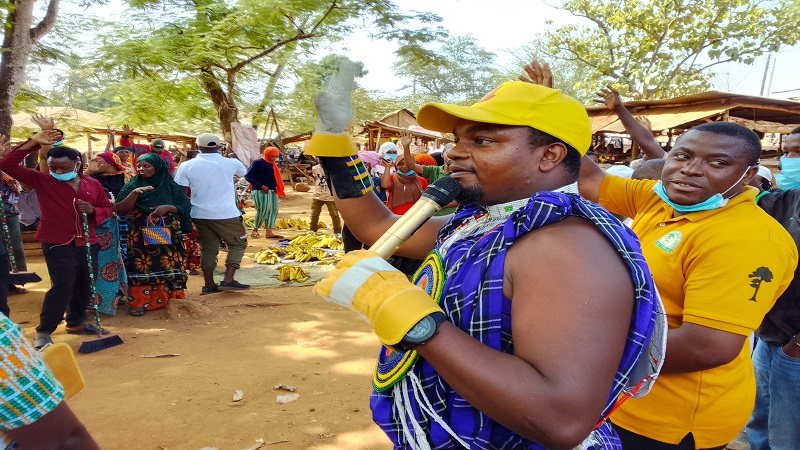Xi’s congratulatory message to 38th AU Summit draws warm responses
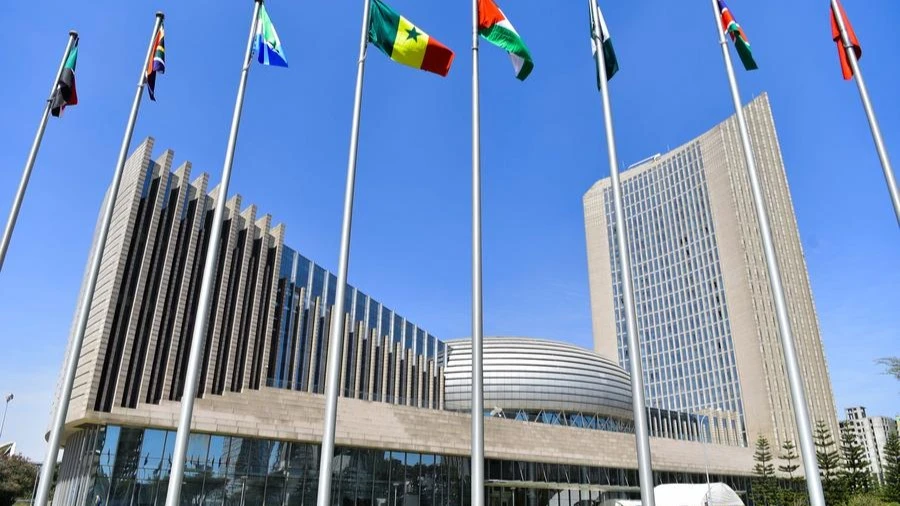
In February 2025, the 38th African Union (AU) Summit kicked off in Addis Ababa, Ethiopia with a dose of good vibes and international camaraderie, as Chinese President Xi Jinping sent his heartfelt congratulations to Africa.
A gesture that was equal parts diplomatic charm and strategic messaging, President Xi's statement reaffirmed China’s unwavering support for African nations amid the ever-complicated global geopolitical scene.
In the course, he declared that Africa and China are more than just trading partners; they are a “community with a shared future.” And no, this isn't an ancient proverb—it's the core message of Xi's speech.
He then went on to highlight China's readiness to team up with African nations in implementing global initiatives like the Global Development Initiative, the Global Security Initiative, and the Global Civilization Initiative (phew, that’s a lot of “initiatives”). What’s the takeaway? China is in this for the long haul, and it’s all about true multilateralism—no solo acts here.
African leaders were quick to respond with enthusiasm to Xi's assurances. And, quite frankly, who would not be excited about a commitment to economic advancement and regional security at a time when the world feels like it’s caught in a geopolitical tug-of-war?
Amid all the diplomatic handshakes, the summit was also a working session for practical decisions that could change the African landscape. Key agreements were reached, notably the creation of the African Financial Stability Mechanism (AFSM). This is Africa's shiny new fund, designed to prevent debt crises and offer concessional loans. If all goes according to plan, it could save African nations billions in debt servicing by 2035. It’s like getting financial therapy and a road map to long-term economic health.
Meanwhile, a major shift in AU governance took place as new leaders were elected to take the helm. Djibouti’s Mahmoud Ali Youssouf was appointed as the AU Commission Chairperson, and Algeria’s Selma Malika Haddadi became Deputy Chairperson. A new era? It certainly looks that way.
Now, it wasn’t just the diplomats shaking hands and making promises; economic experts weighed in too. Tanzanian Economist and Investment banker Dr Hildebrand Shayo had this to say about Xi’s message: “This is a testament to the deepening relationship between China and Africa. It's a new phase of cooperation that promises mutual growth.” That’s a diplomatic way of saying, “This is the real deal.” According to Dr Shayo, Xi’s recognition of Africa’s rising global influence and the progress made by the Global South is a nod to the continent’s growing role in world affairs.
But the summit wasn’t just about economic cooperation and financial stability-it also shone a light on the fight for justice and reparations for Africa and its diaspora.
Leaders advocated for financial compensation, land restitution, and the return of stolen cultural artefacts. The ghosts of slavery and colonialism are not easily forgotten, and this summit was a reminder that reparative justice is long overdue.
The summit also made sure not to ignore the state of security across the continent. For example, the ongoing conflict in eastern Congo was a significant topic of discussion. Leaders urgently called for a ceasefire and direct negotiations between the Congolese government and M23 rebels. The question was clear: can Africa put its house in order?
China-Africa relations have been on the rise for years, and the 2024 Forum on China-Africa Cooperation (FOCAC) summit in Beijing was a crucial stepping stone. Dr. Shayo describes the event as a “turning point” for the bilateral relationship, marking the beginning of a new era of cooperation.
So, what’s on the table for both parties? A whole lot of strategic modernization initiatives and cooperative projects. If everything goes according to plan, Africa will experience a transformation in areas like industrialization, infrastructure, and sustainable economic practices. In short, it’s like China saying, “We’re here for the long haul, and we’re bringing the tools to get things done.”
While China’s investment in Africa is no small thing, it’s not just about boosting infrastructure and manufacturing; it’s about fostering a shared destiny.
Dr Shayo pointed out that China is invested in Africa’s success-through mutual growth and unity, they both hope to reshape the international order in a more balanced and equitable way.
Another Tanzanian scholar, Professor Kitojo Wetengere, who is an economic analyst, is a firm believer in the transformative power of China-Africa relations. He noted how Chinese infrastructure projects, industrialization initiatives, and technological investments are already reshaping the continent.
From manufacturing to digital innovation, China’s presence is undeniable. But there’s a catch: African leaders need to approach these relationships strategically to ensure they benefit from them in the long run.
“China’s commitment to Africa is promising,” Wetengere remarked. “But African leaders need to negotiate wisely. If they do, these investments could be transformative.”
He emphasized the importance of not just exporting raw materials but adding value to Africa’s products before selling them to China. The raw materials-to-finished goods transition could unlock major growth, creating jobs and boosting local industries.
This is where the rubber meets the road: Africa’s success in this relationship depends on how effectively countries negotiate terms that benefit their industries and diversify their economies. For the partnership to thrive, African nations must ensure that their workforce is strengthened, local industries grow, and new sectors emerge. It's all about economic sovereignty.
But let’s not forget that these partnerships come with an extra layer of political strategy. According to political analyst Mr. Hamiduni Maliseli, China’s support is also a game-changer for Africa’s global diplomatic presence. “This partnership enhances Africa’s position on the world stage,” Maliseli explained. “Africa is no longer just a recipient of foreign investment; it’s becoming an active participant in global discussions.”
Malisei added that China has been consistent in advocating for Africa’s increased representation in international bodies, including the UN Security Council. So, when President Xi praises Africa for advancing integration and speaking as the "Voice of Africa," it’s more than just feel-good rhetoric. It’s a clear message that Africa is gaining ground politically, and China recognizes this.
In the grand scheme, the China-Africa partnership looks set to grow stronger, more diverse, and even more important. As President Xi continues to engage with African leaders at global forums, there’s a clear sense that both sides see this relationship as key to shaping a new era in world politics and economics. The question is, can African nations navigate this partnership with a smart and strategic approach that benefits their long-term sovereignty?
The future holds great promise, but success depends on the delicate balance of negotiation, policy, and collective will. As the AU and China work together, the world will be watching to see if Africa’s rise is a sustainable one or just another flash in the pan. For now, one thing is certain: this partnership is about mutual growth, and everyone’s got skin in the game.
Agencies
Top Headlines
© 2025 IPPMEDIA.COM. ALL RIGHTS RESERVED








